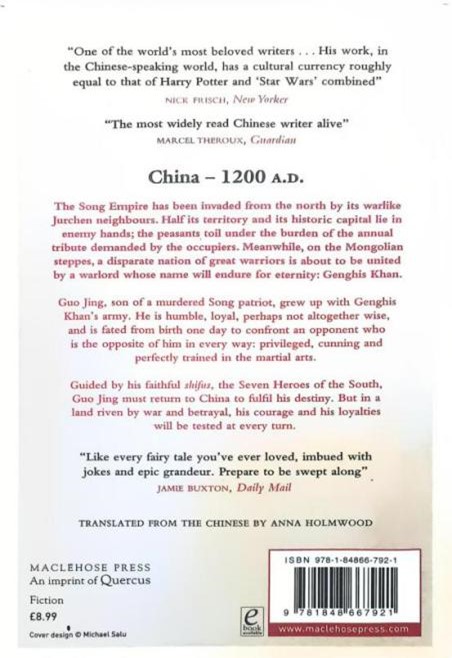A Study on British Translator Anna Holmwood’s Translation of Contemporary Chinese Literature from the Perspective of International Sinology
Abstract
Anna Holmwood, a famous British translator, has long been devoted to the translation and promotion of contemporary Chinese literature, and has made remarkable contributions to the international communication of Chinese literature into the English language literature context. Based on Holmwood’s translated works of contemporary Chinese literature, Holmwood’s view of translation can be analyzed and explored in terms of selection of original works, translation strategy and translator’s subjectivity. Taking Holmwood’s translation of Chinese literature as an example, the experience of orientation towards the publication market in the communication region and conforming to the reading and aesthetic habits of the targeted readers can be drawn from, which will be beneficial for the further promotion of the communication of Chinese literature overseas, and form a historical reference to translator studies and Chinese literature translation studies on the communication of excellent Chinese literary works in the context of international sinology.
References
[2] Diao, H. (2024). Cinematic literary translation: The case of A Hero Born. Translation Studies, 17(1), 135-151. https://doi.org/10.1080/14781700.2023.2209570
[3] Holmwood, A. (2018, March 17). The legend of Jin Yong: A workshop in “Translating China.” Retrieved from https://www.youtube.com/watch?v=M-zafHs66Qw&t=1178s
[4] Holmwood, A. (2019, January 11). BBC sounds: Last word. Retrieved from https://www.bbc.co.uk/sounds/play/m0001y9m
[5] Jiang, T., & Zhang, Y. (2023). Empathy and literary return: Subjectivity in the translation and transmission of Shediao Yingxiong Zhuan. Chinese Translators Journal, (1), 69-76.
[6] Jin, Y. (2013). Shediao Yingxiong Zhuan (Newly Revised Edition). Guangzhou: Guangzhou Press. (in Chinese)
[7] Jin, Y. (2018). A Hero Born: Legends of the Condor Heroes (A. Holmwood, Trans.). London: MacLehose Press.
[8] Liang, L. X. (2018). Study on the communication path of foreign translation in the context of China’s “Going Out” – Taking Xi Jinping: The Governance of China as an example. Wuhan: Wuhan University Press. (in Chinese)
[9] Mariotti, R., & Fife, B. (1995). How to be a literary agent: An introductory guide to literary representation. Piccadilly Books.
[10] Sun, Y. X. (2018). The chivalry maker: Jin Yong. Beijing: Unity Publishing House. (in Chinese)
[11] Xie, T. Z. (2014). Chinese literature going global: Problems and substance. Comparative Literature in China, (1), 1-10. (in Chinese)
[12] Ye, S. S. (2023). A study on the translator’s subjectivity in the translation of martial arts novels under the perspective of aesthetics – Taking the English translation of Legends of the Condor Heroes (all four volumes) as an example. Journal of Zhejiang Wanli College, 36(2), 69-75. (in Chinese)
[13] Zha, M. J., & Tian, Y. (2003). On the subjectivity of translators: From the marginalization of translators' cultural position. Chinese Translators Journal, (1), 19-24. (in Chinese)
[14] Zhang, G. L. (2009). Principles of communication. Shanghai: Fudan University Press. (in Chinese)
[15] Zhang, M. (2020). A study on the formation of translator’s inertia and its influence on translation behavior in Anna Holmwood – Taking the English translation of Legends of the Condor Heroes (Volume I) as an example. Foreign Languages and Literature, (3), 305-314. (in Chinese).


This work is licensed under a Creative Commons Attribution 4.0 International License.
Copyright for this article is retained by the author(s), with first publication rights granted to the journal.
This is an open-access article distributed under the terms and conditions of the Creative Commons Attribution license (http://creativecommons.org/licenses/by/4.0/).









1.png)














